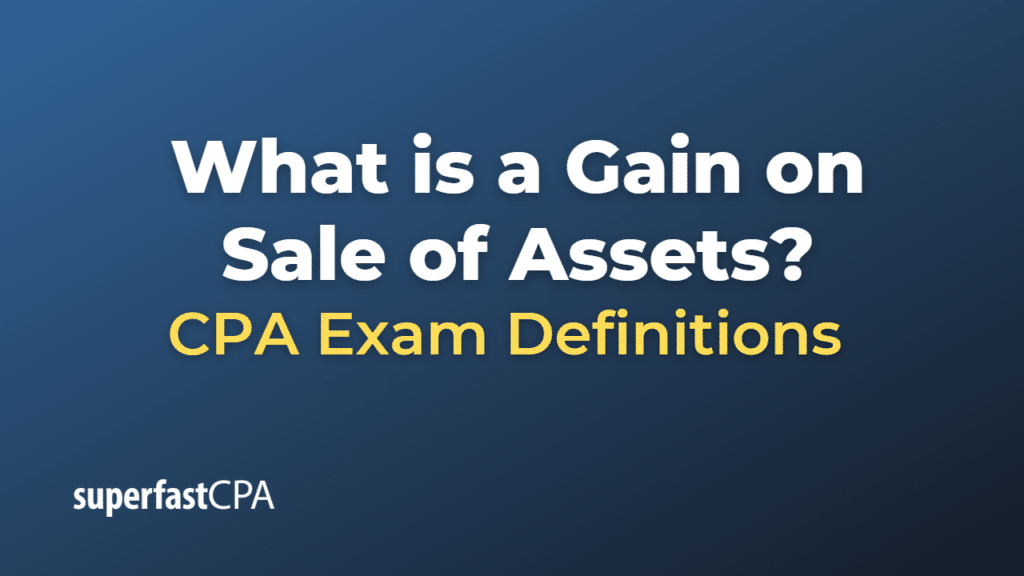Gain on Sale of Assets
A gain on sale of assets occurs when a company sells an asset for more than its recorded book value on the company’s financial statements.
The book value of an asset is its original cost minus accumulated depreciation (for depreciable assets like machinery or buildings) or any impairment charges (for intangible assets like goodwill). When an asset is sold, the company subtracts the book value of the asset from the selling price to determine the gain or loss.
If the selling price is higher than the book value, the company records a gain. If the selling price is lower than the book value, the company records a loss.
For example, if a company sells a piece of machinery with a book value of $10,000 for $15,000, the company would record a gain on sale of assets of $5,000 ($15,000 – $10,000).
This gain is typically reported as non-operating income on the income statement, because it arises from a transaction outside of the company’s usual business operations. However, for companies whose main business involves buying and selling assets (like a used car dealership), gains on sales of assets may be considered operating income.
Example of a Gain on Sale of Assets
Imagine you own a business, and within your business, you have a delivery van that was originally purchased for $20,000. Over the years, the van has depreciated in value, and it currently has a book value of $8,000 in your company’s accounting records.
Now, suppose you decide to sell the van. You find a buyer who agrees to purchase the van for $10,000. The sale proceeds exceed the van’s book value in your financial records.
Here’s how you would calculate the gain on sale:
Selling Price: $10,000 Book Value: $8,000 Gain on Sale = Selling Price – Book Value = $10,000 – $8,000 = $2,000
In this case, you’ve made a gain of $2,000 on the sale of the van. This gain would typically be recorded in your income statement as a gain on sale of assets, separate from your regular business income. This helps stakeholders understand that this income is not part of your regular business operations and may not recur in the future.
It’s worth noting that the treatment of the gain for tax purposes may depend on your jurisdiction and its specific tax laws. In some cases, you may need to pay capital gains tax on the amount gained from the sale of an asset. Always consult with a financial advisor or tax professional for accurate information.













